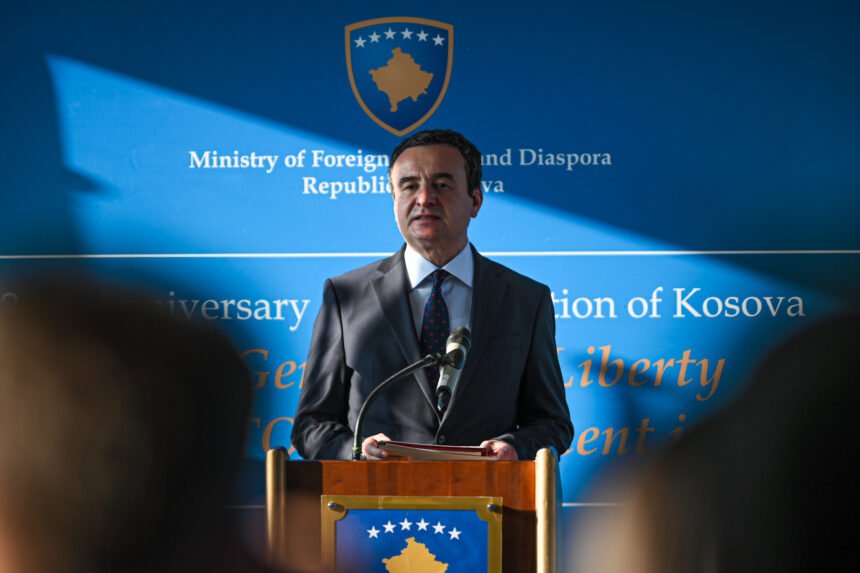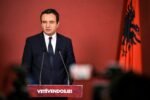On the eve of Kosovo’s Liberation Day, a formal reception was held today organized by the Ministry of Foreign Affairs and Diaspora, marking 26 years since NATO’s intervention. The acting Prime Minister of the Republic of Kosovo, Albin Kurti, attended the event along with Deputy Prime Minister and Foreign Minister Donika Gërvalla-Schwarz and other government cabinet members.
In his address, Prime Minister Kurti emphasized the importance of using this historic day to express gratitude to all who contributed to Kosovo’s liberation struggle. He highlighted that 26 years ago, 19 NATO countries united to end the genocide perpetrated by the regime of Slobodan Milošević, “the butcher of the Balkans,” against Kosovo Albanians.
“The liberation of our people on June 12, 1999, came after 78 days of NATO bombing of Serbia and its military positions in Kosovo. As the decades pass, commemorating this day and remembering the martyrs and victims becomes more—not less—important. This is because, year after year, Serbia and Russia increase their efforts to rewrite history: to question the justification of NATO’s intervention and to misuse it as precedent for unprovoked aggression against Ukraine,” Kurti said.
Kurti underlined that between 1998 and 1999, the violent discrimination and repression of Kosovo’s Albanian population escalated into genocide and ethnic cleansing. He recounted that:
- Hundreds of massacres were committed,
- 12,000 unarmed civilians were killed,
- 20,000 women and men were raped,
- 860,000 people were expelled from the country, and
- 80% of the population were displaced from their homes.
Marking the 26th anniversary of NATO’s intervention, and on the verge of Liberation Day, Kurti stated that Kosovo’s liberation marked the end of a dark chapter in the country’s history and opened a new era that culminated in the independent and sovereign Republic of Kosovo.
He further emphasized that 26 years after liberation and 17 years after the declaration of independence, Kosovo has risen from the ruins of war and genocide to become the most democratic country in the Western Balkans, with strong economic achievements.
“Kosovo’s success in the decades following the war is also NATO’s success. It was the NATO intervention and Kosovo’s liberation that paved the way for the creation of our state nine years later,” Kurti stated.
In closing, Kurti affirmed that from liberation to eventual NATO membership, Kosovo and NATO are inseparably linked—both in history and in their shared future.






